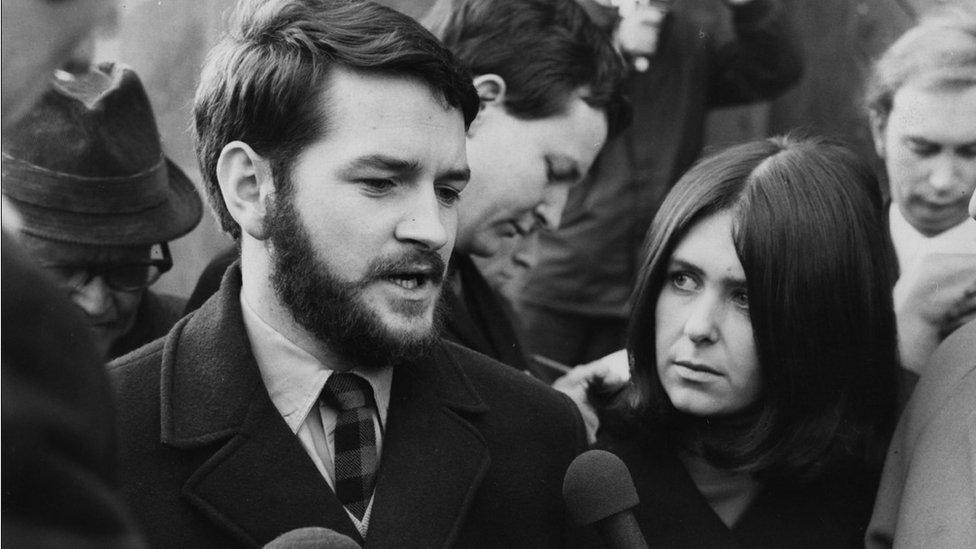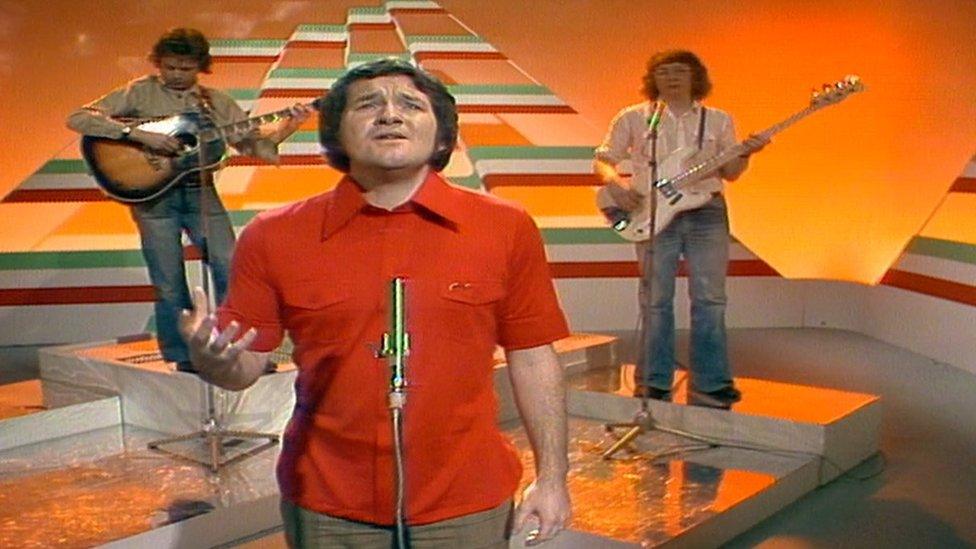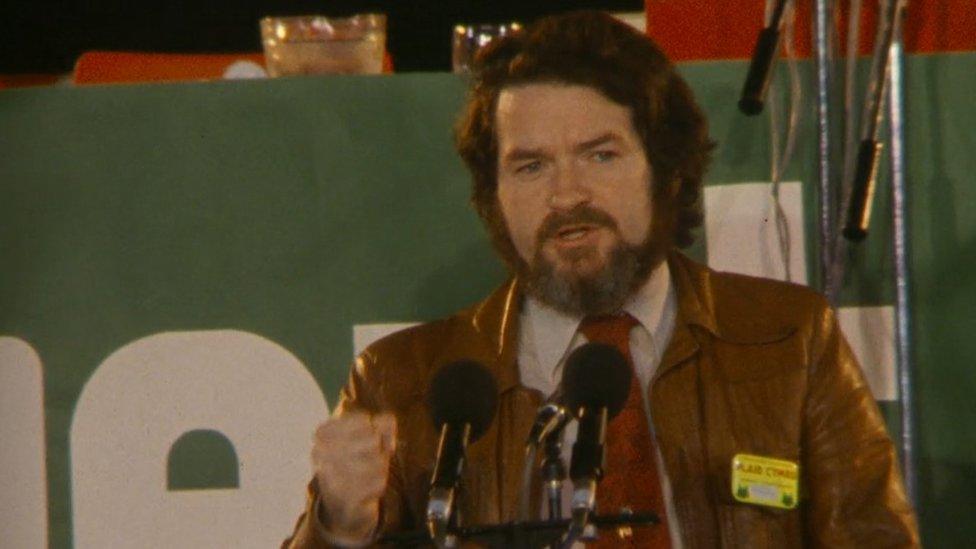Yma O Hyd: Dafydd Iwan celebrates 80th birthday
- Published
Welsh singer Dafydd Iwan celebrates his 80th birthday
Imagine Dylan Thomas or William Shakespeare appearing in a classroom to talk to children - this is how singer Dafydd Iwan believes he is often seen.
Through the national curriculum, pupils learn of his protest songs and Welsh language campaigns in the 1960s.
But when he visits schools, he said shocked children look at him like "a dead poet" and a figure from history.
He turns 80 on Thursday and is very much "still here" - the translation of his famous song Yma O Hyd.
"The children get taught Welsh history in schools now under the new curriculum, so they know about my protest songs and the Welsh language campaigns," Iwan said.
"But I think some of them think of me as a figure from history, like a dead poet, because they say (surprised) 'you know, he's actually alive'.
"Some of them look at me as if they're looking at a dead person come alive."

"Figure from history" - Dafydd Iwan speaks to the media after being released from Cardiff Prison in 1970
This may go a little way towards describing the singer's relationship with modern Wales - he is a central figure in its recent past, but also its present.
Children read in school about his campaigns to protect the Welsh language in the 1960s.
They know him as the man whose battle saw him jailed for three weeks in 1970 for refusing to pay fines after defacing English-language road signs.
But many also know him as the embodiment of Wales' push to the 2022 World Cup in Qatar.
Allow YouTube content?
This article contains content provided by Google YouTube. We ask for your permission before anything is loaded, as they may be using cookies and other technologies. You may want to read Google’s cookie policy, external and privacy policy, external before accepting. To view this content choose ‘accept and continue’.
Yma O Hyd is his song about how the Welsh nation, language and identity has survived against the odds over the centuries.
While it was first released in 1983, many became captivated by it almost 40 years later, watching a tear-strewn Iwan's emotional rendition as Gareth Bale's side marched on to football's greatest stage.
He had been asked to perform it at the Cardiff City Stadium before the World Cup qualifier against Austria in March 2022 as it was a favourite among the players.

Dafydd Iwan - performing in 1976 - has enjoyed a 60-plus year music career
Initially he had been hesitant as he did not know if it would work, but said: "It's changed my life. It's not too much to say it's actually changed my life.
"Suddenly this Welsh-language song has become known throughout Wales, not just among Welsh speakers.
"Many non-Welsh speaking people have learned the words and it's become a kind of anthemic symbol of not only the football team but also of Wales."
Who is Dafydd Iwan?
The singer from Bontnewydd, Gwynedd, has also been a lifelong supporter of Welsh independence and was president of Plaid Cymru from 2003 to 2010.
Despite consistent polling showing it is currently the will of a minority, he believes it could happen soon - something he told King Charles.
"I know that we are within touching distance of independence and I know in their heart of hearts that people in Wales would love to be a part of what we're about when we talk about it," he said.
"What I told the present King of England when we met briefly in 2019 was my vision of the future was independent countries working together to create a new dynamic Britain."

Pictured at the Plaid Cymru conference in 1980, Dafydd Iwan has campaigned for Welsh independence his whole life
Welsh independence campaigns
He urged campaign groups and parties to "knuckle down" and take away the fear of independence by explaining its advantages.
"Talk to the people of Wales and work on a theory of mine that the majority of the Welsh people are very close to the idea of a self-governing Wales - or in other words independence," he added.
Iwan will celebrate his birthday with a family gathering at the weekend.
While he is a prominent figure in the nation's past and present, he still has a role to play in its future, adding: "I've enjoyed my 80 years, I hope I've got a few to go yet."

JOHN RUTLEDGE IS ON A QUEST: Can Mushrooms Save the World?
FIFTY-FIVE YEARS ON: What were Mary Hopkin's career highlights?

Related topics
- Published11 June 2022

- Published25 March 2022
